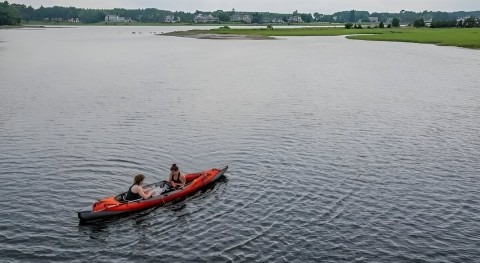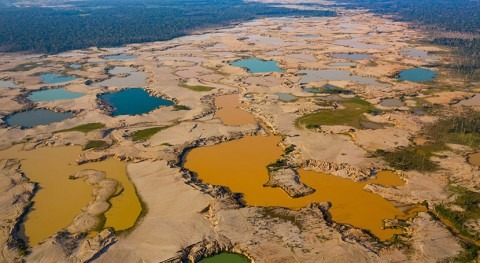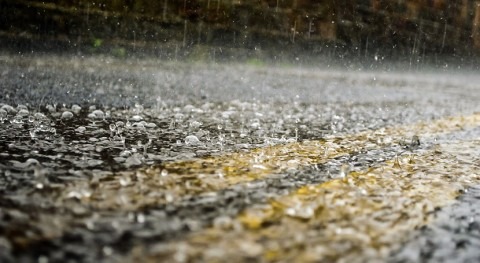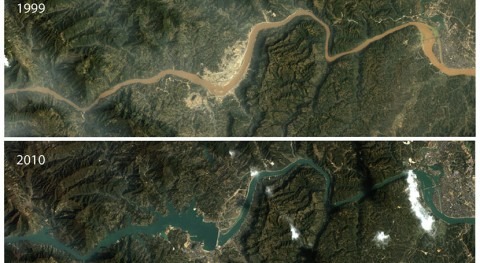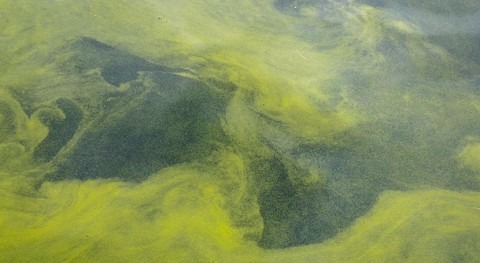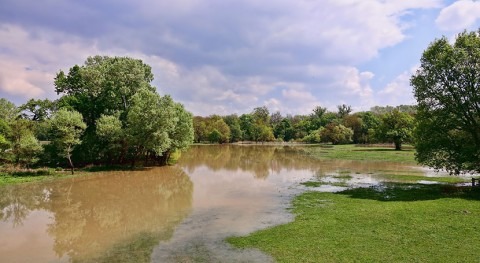A team of scientists from research centers stretching from Maine to South Carolina will develop and deploy high-tech tools to explore cyanobacteria in lakes across the East Coast.
The multi-year project will combine big data, artificial intelligence and robotics with new and time-tested techniques for lake sampling to understand where, when, and how cyanobacterial blooms develop.
The research team brings together experts in freshwater ecology, computer science, engineering and geospatial science from Bates College, Colby College, Dartmouth, the University of New Hampshire, the University of Rhode Island and the University of South Carolina.
"It is rare to have teams from so many different specialties converge to study a problem like this," said Alberto Quattrini Li, an assistant professor of computer science at Dartmouth and the overall project lead. "By working together, we can increase the amount of data that can be collected and increase prediction capabilities."
Freshwater lakes are responsible for a variety of human and ecological services, such as providing drinking water and producing food. But lakes across the country and world are increasingly threatened by an increase in the incidence of harmful cyanobacterial blooms.
Sometimes known as blue-green algae, blooms of cyanobacteria impact the quality of lake water and threaten human health through toxins that can damage multiple organ systems.
Scientists know that land-use changes and global climate change are the main drivers of cyanobacteria, but there is still much that is not known about what influences the timing and location of blooms in individual lakes. Researchers are also looking to understand how cyanobacteria are impacted by extreme precipitation events.
"We suspect that individual blooms result from a complicated interaction of conditions that include nutrient loading during the past spring, recent trends in temperature and precipitation, and current in-lake conditions," said Kathryn Cottingham, a professor of biology at Dartmouth. "Until now, we haven't had the tools or technologies to track conditions at the right spatial or temporal scales to understand those drivers."
The project will use robotic boats, buoys and camera-equipped drones to measure physical, chemical, and biological data in lakes where cyanobacteria are detected. When combined, the technology will generate large volumes of data related to the lakes and the development of the harmful blooms. The project will also build new algorithmic models to assess the findings.
Lakes in New Hampshire, Maine, Rhode Island, and South Carolina will be studied as part of the project.
Information collected through the research could lead to better predictions of when and where cyanobacterial blooms take place. Those predictions might allow earlier actions to protect public health in recreational lakes and in lakes that supply drinking water.
With technology covering the water and air, researchers will also collect information on population and land use around the lakes to determine how those factors might impact bloom formation.
Project technology will be shared with lake managers and citizens so that community members can conduct their own monitoring. Local homeowners will form a corps of "citizen scientists" to support the project.
Undergraduate and graduate students will also participate with the project. Such interdisciplinary training is hoped to prepare the next generation of scientists to address societal issues.




